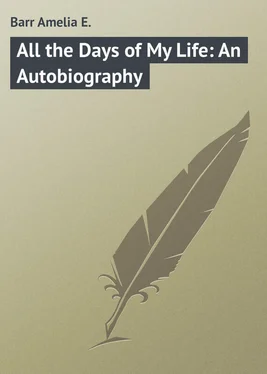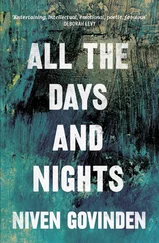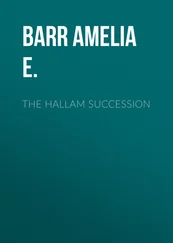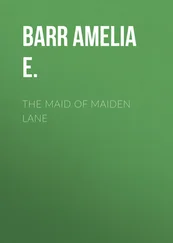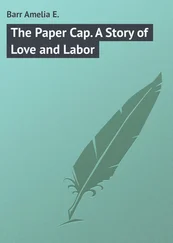Amelia Barr - All the Days of My Life - An Autobiography
Здесь есть возможность читать онлайн «Amelia Barr - All the Days of My Life - An Autobiography» — ознакомительный отрывок электронной книги совершенно бесплатно, а после прочтения отрывка купить полную версию. В некоторых случаях можно слушать аудио, скачать через торрент в формате fb2 и присутствует краткое содержание. Жанр: foreign_prose, foreign_language, на английском языке. Описание произведения, (предисловие) а так же отзывы посетителей доступны на портале библиотеки ЛибКат.
- Название:All the Days of My Life: An Autobiography
- Автор:
- Жанр:
- Год:неизвестен
- ISBN:нет данных
- Рейтинг книги:5 / 5. Голосов: 1
-
Избранное:Добавить в избранное
- Отзывы:
-
Ваша оценка:
- 100
- 1
- 2
- 3
- 4
- 5
All the Days of My Life: An Autobiography: краткое содержание, описание и аннотация
Предлагаем к чтению аннотацию, описание, краткое содержание или предисловие (зависит от того, что написал сам автор книги «All the Days of My Life: An Autobiography»). Если вы не нашли необходимую информацию о книге — напишите в комментариях, мы постараемся отыскать её.
All the Days of My Life: An Autobiography — читать онлайн ознакомительный отрывок
Ниже представлен текст книги, разбитый по страницам. Система сохранения места последней прочитанной страницы, позволяет с удобством читать онлайн бесплатно книгу «All the Days of My Life: An Autobiography», без необходимости каждый раз заново искать на чём Вы остановились. Поставьте закладку, и сможете в любой момент перейти на страницу, на которой закончили чтение.
Интервал:
Закладка:
Dear Brother Farrar,
My daughter Amelia is likely to be teaching in Richmond this winter. I know you will give her counsel, and show her kindness, if needed. Your brother in Christ,
William Henry Huddleston.Dr. Farrar read the note with a pleasant countenance, and then smiled at me. “So you are Amelia?” he asked, and I answered, “Yes, sir.” Then he called three ladies who were standing a little apart, and said, “Esther, this is Amelia Huddleston. You remember my correspondence with her father, I am sure.”
“Oh, yes, about that weary Tractarian Movement. I remember it very well,” she answered, and then turning to me continued, “I am glad to see you, Amelia. Come home with us, and spend the evening with my girls.” This was the beginning of a friendship that enabled me to endure cheerfully the weariness and monotony of my duties. For amid many outside annoyances I built silently on my trust in God, and I did my day’s work loyally.
Richmond was then, and may be yet, the seat of a great Wesleyan college for the preparation of young men for the ministry; and of this college Dr. Farrar was the principal. His family consisted of his wife and two lovely daughters, the eldest being just my own age. We were friends at once, our mutual knowledge of Mr. Punshon, forming an excellent basis for our intimacy. And after this introduction, I spent all my spare hours at Dr. Farrar’s, where I was always made freely welcome.
Joyful or sorrowful the days go by, and at the end of October we had eight pupils, but only three of these eight were boarders, and the great empty house that should have been full of youth and happiness, was a lonely anxious place. And it was at this time I heard that the sorrow so long expected had arrived. My father after preaching to a crowded chapel had hurried home, and fallen across the threshold in a strong, and not to be disputed epileptic fit. Then with heart-breaking reluctance, he had signed his resignation from the active ministry, and had seen another take his place. In great anguish he had prayed that this cup might pass from him; but, no, he had to drink it to the very dregs. Yet Mother wrote me, that he had not missed the vision of the comforting angel; for vision is the cup of strength only given in some great calamity.
I felt severely the grief that I knew filled every room in my home, but God had sent it, and He knew what was best. This trust was not a mere formula of words; it was a veritable and active faith with me. I trusted God. I leaned my child heart upon the everlasting Love of “our Father in heaven” and the days went on, and I did my work, and believed that all would come right.
Miss Berners’ affairs, however, grew every week worse and worse, and just before Christmas, I went into her room one morning, and found her lying on the bed weeping bitterly. She opened her eyes, and looked sadly at me and I asked, “Is it worth while continuing the fight? You are growing thin and gray, and you have not gained a step.”
“O Amelia!” she answered, “I have made a great mistake.”
“Every day is making it worse. Why not stop it?”
“My expenses are double my income.”
“Then it is robbery to continue them.”
“What would you do? Tell me truly, Amelia.”
“I would close the school this very hour,” I answered. “I would tell those three Downham Market girls to pack their trunks, and send them home by the noon train. At nine o’clock I would send those five unhappy-looking day scholars home also. Give all you have to your creditors, and go home yourself, and rest awhile. Then you can doubtless retrieve this great mistake.”
“And what will you do, Amelia?” she asked.
“I do not know yet,” I answered. “I must think.”
After the Downham Market girls had been sent home, I went to my room and began to consider my own affairs. I remembered first, the loss in my father’s income. That was an irreparable loss. I thought of all the expenses incident to constant sickness in a house, of the education of Mary and Alethia, of the necessity of Jane’s presence to assist Mother and I said to myself, “You, Amelia, are the one person not needful, and you must in some way provide for yourself.” I opened my purse, and found I had fourteen shillings. How was I to provide for myself? I was a stranger in Richmond. I knew no one but the Farrars. Perhaps Mr. Farrar might – and then I tried to imagine what Mr. Farrar might do for me. I thought until my head burned, but thank God! there was no fear in my thoughts. That paltering, faltering element, was not among my natural enemies. Far from it, I found something magnetic in extremities. If I was ever indifferent to events, it was because they were only moderate. To possess my soul in patience was a difficulty; to possess it in resistance and struggle was more natural, and more agreeable.
I bathed my hot head and face, and then did what I ought to have done at first – I went to my Father in heaven, and told Him all my sorrow and perplexity. And as I talked with Him, tears like a soft rain fell upon my prayer, and I rose up full of strength and comfort, whispering as I dressed myself for the street, “Why art thou cast down, O my soul, and why art thou disquieted within me? The Lord is thy refuge, and underneath are the everlasting arms.”
I went quickly to Dr. Farrar, and I found him at home; then without hesitation I told him all that troubled me. He answered, “You are right, Amelia, and I can find work for you, if you are not too proud to take it.”
“Pride has nothing to do with my duty,” I replied.
“Then listen,” he continued. “You must have noticed that during the last ten years there has been a tremendous output of national energy and wealth for the education of the lower classes. National schools, and Bell and Lancaster schools, are going up all over England; and we Wesleyans, could not sit still when all other churches were working. Indeed we are going to build a school in all towns where the chapel membership is able to support one.”
“I believe there is such a school in Kendal,” I said.
“Our wisest men have decided, that a certain form of teaching called the Stowe method, will be best for the class of children we wish to reach; and this method is taught in the Normal School at Glasgow, where we have now nearly forty young men and women studying it. Now, Amelia, if you will go to Glasgow to learn this method, I will promise you a good school, and a good salary, and you could bring your father and mother to wherever you are located, and make your homes together.”
Then with the daring decision of young fresh faculties, I cried out, “O Dr. Farrar! I should like that better than anything else.”
“The children may be mostly poor children,” he added.
“I used to long to be a missionary. I can call it a mission work. Oh, I should enjoy it! But – ” and I looked doubtfully at him – “but this course of instruction, will it cost much money?” I asked.
“Our Board of Education will look after that,” he answered. “They pay the Normal School so much for every pupil, and they will also give you one pound every week for your rooms and food. You can live on that, I should say?”
“Very well indeed.”
“The Board will also allow you five pounds for traveling expenses, but – ”
“Yes, Dr. Farrar, but what?”
“When you have won your diploma, and have been appointed to a school, the Board will expect you to gradually pay back what it spends for your education.”
“That is right,” I answered. “I should like to pay it back, but if I should die, would my father have to pay it for me?”
“No, no, child! Death pays all debts. You are more likely to marry, than to die.”
Читать дальшеИнтервал:
Закладка:
Похожие книги на «All the Days of My Life: An Autobiography»
Представляем Вашему вниманию похожие книги на «All the Days of My Life: An Autobiography» списком для выбора. Мы отобрали схожую по названию и смыслу литературу в надежде предоставить читателям больше вариантов отыскать новые, интересные, ещё непрочитанные произведения.
Обсуждение, отзывы о книге «All the Days of My Life: An Autobiography» и просто собственные мнения читателей. Оставьте ваши комментарии, напишите, что Вы думаете о произведении, его смысле или главных героях. Укажите что конкретно понравилось, а что нет, и почему Вы так считаете.
